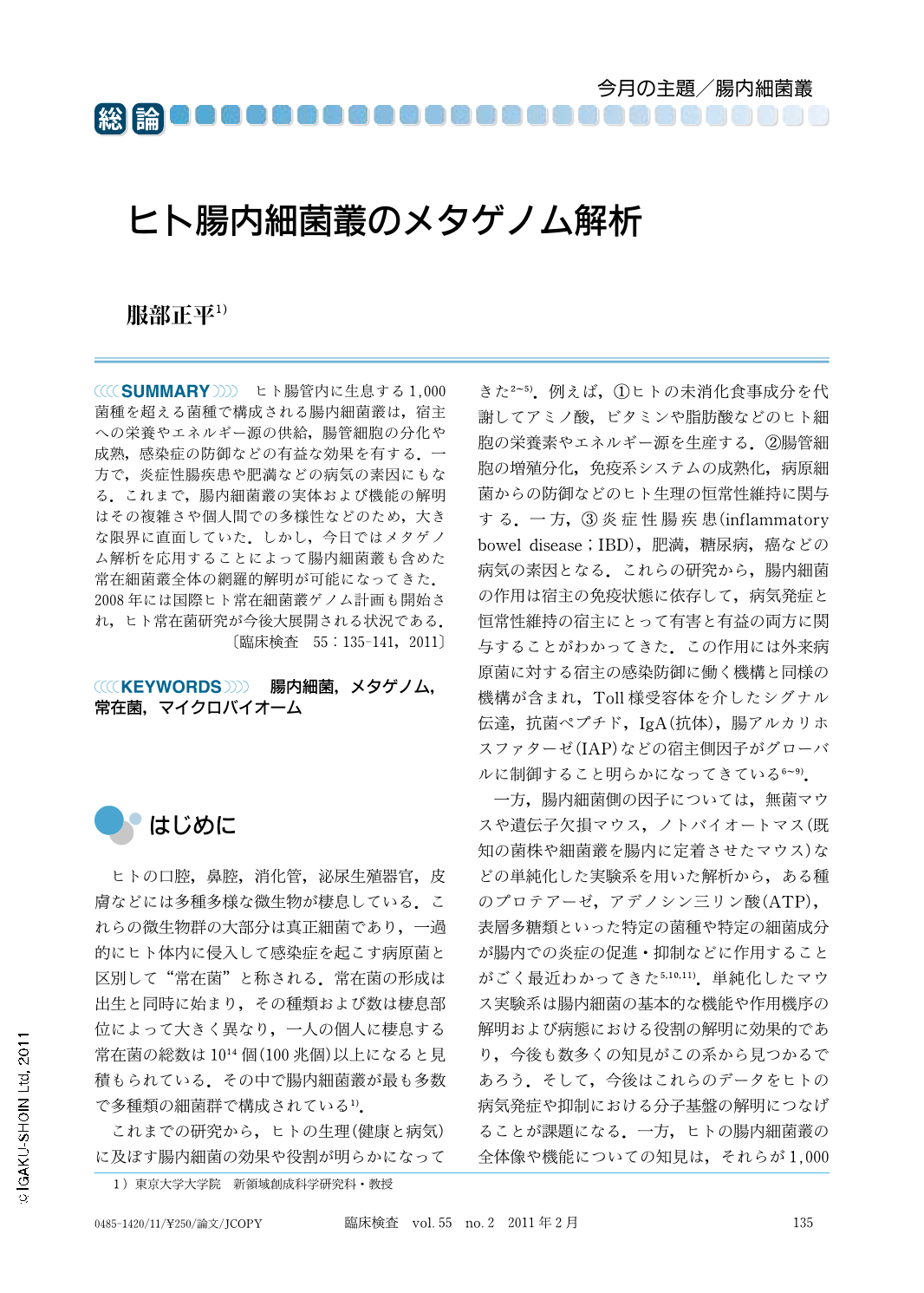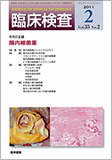Japanese
English
- 有料閲覧
- Abstract 文献概要
- 1ページ目 Look Inside
- 参考文献 Reference
ヒト腸管内に生息する1,000菌種を超える菌種で構成される腸内細菌叢は,宿主への栄養やエネルギー源の供給,腸管細胞の分化や成熟,感染症の防御などの有益な効果を有する.一方で,炎症性腸疾患や肥満などの病気の素因にもなる.これまで,腸内細菌叢の実体および機能の解明はその複雑さや個人間での多様性などのため,大きな限界に直面していた.しかし,今日ではメタゲノム解析を応用することによって腸内細菌叢も含めた常在細菌叢全体の網羅的解明が可能になってきた.2008年には国際ヒト常在細菌叢ゲノム計画も開始され,ヒト常在菌研究が今後大展開される状況である.
Human gut microbiota composed of over 1,000 microbes possesses many metabolic capabilities to generate nutrient and energy source for host, is heavily involved in the maturation and proliferation of human intestinal cells, helping to maintain their homeostasis, and can be causative of various diseases such as inflammatory bowel disease and obesity. It has been very difficult to analyze the whole microbiota because of its complexity and diversity. Currently, metagenomics has enabled us to comprehensively elucidate the biological and genetic features of microbiota. In 2008, the International Human Microbiome Project was launched to aim to collect genetic information of microbiota from healthy and disease-afflicted subjects.

Copyright © 2011, Igaku-Shoin Ltd. All rights reserved.


